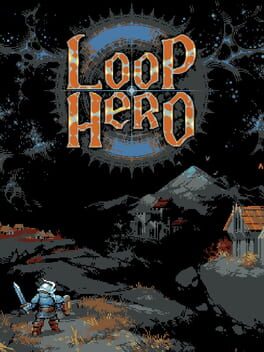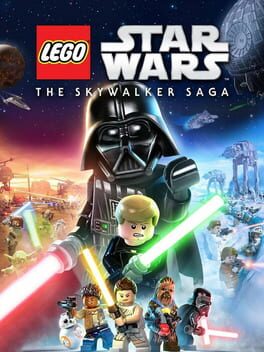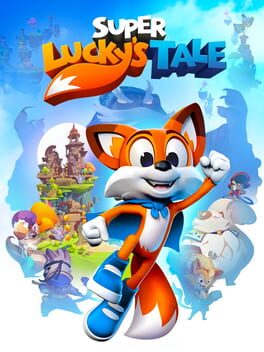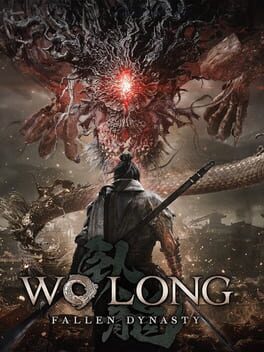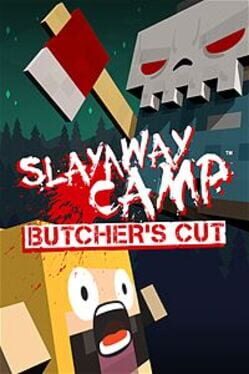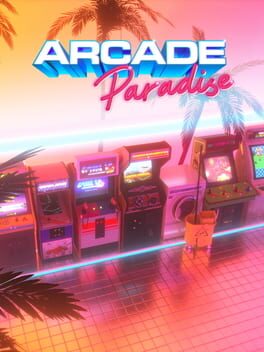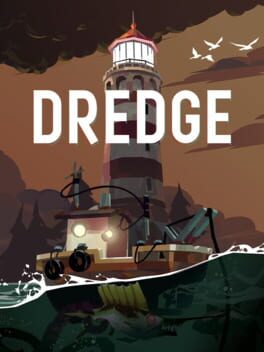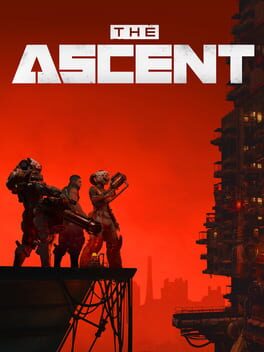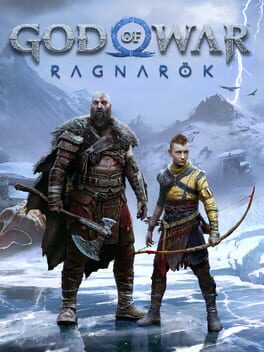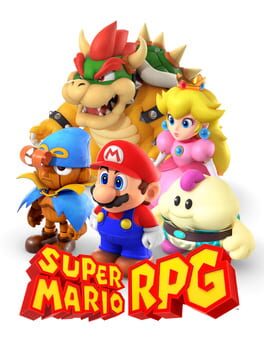sumatran
2021
Round and round we go on a unique rogue-lite adventure. Loop Hero spins an interesting narrative that tries to explain the nature of a rogue-lite, but it's mostly carried by its outstanding music and satisfying game loop (ha).
After your 50th Expedition, the opening minutes of a run become a tiring exercise. Everything is almost scripted to success. But there's still plenty of room to experiment across the 3 classes.
After your 50th Expedition, the opening minutes of a run become a tiring exercise. Everything is almost scripted to success. But there's still plenty of room to experiment across the 3 classes.
The team went through development hell to refresh the Lego video game series into...this? I'm afraid it was not time well spent.
An emphasis was placed on the new combat system, which ultimately amounts to nothing. Does it have combos? Sure! Does it have damage numbers popping out? You bet! Does it have proper 3rd-person shooting mechanics! Pretty much! Does it change the game at all? Not one bit!
Feel free to hack your way to victory, as that's all that's ultimately required. But where this game really falls apart is the bloat. There was no reason to stuff 9 movies into one game. There's barely any room to tell a story, instead bursting at the seams with horrific side missions and collectibles.
It's all about as much fun as stepping on a lego barefoot in the middle of the night.
An emphasis was placed on the new combat system, which ultimately amounts to nothing. Does it have combos? Sure! Does it have damage numbers popping out? You bet! Does it have proper 3rd-person shooting mechanics! Pretty much! Does it change the game at all? Not one bit!
Feel free to hack your way to victory, as that's all that's ultimately required. But where this game really falls apart is the bloat. There was no reason to stuff 9 movies into one game. There's barely any room to tell a story, instead bursting at the seams with horrific side missions and collectibles.
It's all about as much fun as stepping on a lego barefoot in the middle of the night.
2017
A game so bad, they had to release a "New" version of it, instead of patching the original.
In between my Tears of the Kingdom sessions, I've been finishing up achievements for Super Lucky's Tale. I was reminded of how torturous the game can be. You have to really negotiate with the camera. Like a flaky friend, you'll be chilling with the camera in one level, and then wondering where the heck they went in the next.
Ultimately, it's a totally forgettable 3D platformer. Look elsewhere for mascots, Xbox.
In between my Tears of the Kingdom sessions, I've been finishing up achievements for Super Lucky's Tale. I was reminded of how torturous the game can be. You have to really negotiate with the camera. Like a flaky friend, you'll be chilling with the camera in one level, and then wondering where the heck they went in the next.
Ultimately, it's a totally forgettable 3D platformer. Look elsewhere for mascots, Xbox.
Anything Three Kingdoms related is so boring at this point. The characters are indistinguishable and incredibly lame. Lu Bu is cool. But anyone who has cut their teeth on Dynasty Warriors knows that already.
The game wants to tell a story. But for how bad the cutscenes are, there are far too many of them. The game is only worth paying attention to during its hectic combat scenarios. But even when you dig into those, you find too many flaws.
The game is heavily balanced around parrying and fatal strikes. Ultimately, you're rewarded for patiently holding your sword, and baiting an enemy into fatal strike opportunities. It's effective, yet boring. Because you can't cancel out of regular attacks, you're often punished for going on the offensive. You are given other tools to unleash damage in the form of Wizardry and Martial Arts, but neither feel satisfying. Character builds are tedious and ultimately disappointing. The loot system is a huge waste of time. Prepare to send mountains of equipment to the salvage yard.
The game wants to tell a story. But for how bad the cutscenes are, there are far too many of them. The game is only worth paying attention to during its hectic combat scenarios. But even when you dig into those, you find too many flaws.
The game is heavily balanced around parrying and fatal strikes. Ultimately, you're rewarded for patiently holding your sword, and baiting an enemy into fatal strike opportunities. It's effective, yet boring. Because you can't cancel out of regular attacks, you're often punished for going on the offensive. You are given other tools to unleash damage in the form of Wizardry and Martial Arts, but neither feel satisfying. Character builds are tedious and ultimately disappointing. The loot system is a huge waste of time. Prepare to send mountains of equipment to the salvage yard.
Completely busted achievements. Need I say more?
Okay, I'll say a little more.
While I appreciate the various horror movie references scattered amongst the costumes, Gore Packs, and movie titles, I was often annoyed by the Roblox-like characters lumbering around on screen. I just don't get it. Why try to make horror look cute. Or whatever the hell the intention was.
Ultimately, this should have stayed a mobile game. Or not even existed to begin with.
Okay, I'll say a little more.
While I appreciate the various horror movie references scattered amongst the costumes, Gore Packs, and movie titles, I was often annoyed by the Roblox-like characters lumbering around on screen. I just don't get it. Why try to make horror look cute. Or whatever the hell the intention was.
Ultimately, this should have stayed a mobile game. Or not even existed to begin with.
2022
Arcade Paradise is a fun, yet uneven trip through the 80s/90s arcade boom. Whether it was a laundromat, pizza shop, or gas station, you could count on there being at least one arcade cabinet to kill some quarters. While this game captures the aesthetic of that time quite well, it decides to strangely pull you out of that capsule with bizarre cabinets that had no analog from the inspired time period.
The game is split into 2 halves - the arcade business simulator and the mini-games found within. Yes, there is the laundry to contend with from the outset, but you will quickly find yourself ignoring those responsibilities as the arcade revenue grows. The sim management side of the house is a means to an end. There is little value is re-organizing the arcade throughout your business adventure, so it's really just there to move the narrative forward.
And everything in-between comes down to the arcade games. Yes, you can play every cabinet you purchase and home within King Wash Laundromat. But the enjoyment is hit-and-miss. Because almost every game is different, there are disparate systems that all had to be developed and shipped into this game. Which means the quality of some suffer. Various games have poor controls, poor physics, or both. Things like air hockey and table football are painful to play. Even one of the game's flagship cabs - Knuckles and Knees, plays worse than something like TMNT or Simpsons arcade - not to mention any modern contemporaries that are even more finely tuned.
Despite the uneven fun factor of the cabs, there are still plenty that you'll go back to. I was confused why the developer opted to include cabinets that had no obvious analog to the time period. Something like Zombat 2 could maybe be compared to NARC or Smash TV. But why not just go all in? There are hundreds of cabinets to model after; I don't get why certain machines were crammed in here. Entries like Line Terror, Attack Vector, Cyber Dance, and Barkanoid have prominent inspirations that feel right at home.
All of these mentioned games have Goals that you can work on to drive up popularity. The issue is that the systems are not all balanced. Your cabinets make cash to purchase more arcade games and building expansions, but you need to complete daily To-Do tasks to build a separate currency for upgrades and music. This didn't really make any sense. You can only do up to 3 To-Do tasks in a day. So your extra currency was significantly capped. Worse yet, the To-Dos did not de-prioritize games you already completed all Goals on, so you often were forced to play a few minutes of something you didn't want to. A better option would have been to remove To-Dos and just reward Goals with the extra currency.
As a 90s kid, I definitely vibed with Arcade Paradise. It has the decor, the music, and (for the most part), the games. It just doesn't have the balance or the consistency to be excellent.
The game is split into 2 halves - the arcade business simulator and the mini-games found within. Yes, there is the laundry to contend with from the outset, but you will quickly find yourself ignoring those responsibilities as the arcade revenue grows. The sim management side of the house is a means to an end. There is little value is re-organizing the arcade throughout your business adventure, so it's really just there to move the narrative forward.
And everything in-between comes down to the arcade games. Yes, you can play every cabinet you purchase and home within King Wash Laundromat. But the enjoyment is hit-and-miss. Because almost every game is different, there are disparate systems that all had to be developed and shipped into this game. Which means the quality of some suffer. Various games have poor controls, poor physics, or both. Things like air hockey and table football are painful to play. Even one of the game's flagship cabs - Knuckles and Knees, plays worse than something like TMNT or Simpsons arcade - not to mention any modern contemporaries that are even more finely tuned.
Despite the uneven fun factor of the cabs, there are still plenty that you'll go back to. I was confused why the developer opted to include cabinets that had no obvious analog to the time period. Something like Zombat 2 could maybe be compared to NARC or Smash TV. But why not just go all in? There are hundreds of cabinets to model after; I don't get why certain machines were crammed in here. Entries like Line Terror, Attack Vector, Cyber Dance, and Barkanoid have prominent inspirations that feel right at home.
All of these mentioned games have Goals that you can work on to drive up popularity. The issue is that the systems are not all balanced. Your cabinets make cash to purchase more arcade games and building expansions, but you need to complete daily To-Do tasks to build a separate currency for upgrades and music. This didn't really make any sense. You can only do up to 3 To-Do tasks in a day. So your extra currency was significantly capped. Worse yet, the To-Dos did not de-prioritize games you already completed all Goals on, so you often were forced to play a few minutes of something you didn't want to. A better option would have been to remove To-Dos and just reward Goals with the extra currency.
As a 90s kid, I definitely vibed with Arcade Paradise. It has the decor, the music, and (for the most part), the games. It just doesn't have the balance or the consistency to be excellent.
Every year that passed the announcement of a BOTW sequel made me wonder...What could they possibly be working on for so long? What ultimately became a similar development cycle to the open-world precursor, ended up (mostly) justifying its long wait with incredible new functionality and an even opener world than BOTW.
The only issue I have with the game is the re-use of Hyrule. While the surface is modified, it's still very familiar. I was not met with the same sense of wonder as I scaled mountains, crawled into caves, and visited villages, as I was in my first outing à la BOTW. While TOTK is arguably bigger and better in every way, it ironically suffers from the series' prior accomplishments. It didn't do quite enough to surprise me in the same way.
The only issue I have with the game is the re-use of Hyrule. While the surface is modified, it's still very familiar. I was not met with the same sense of wonder as I scaled mountains, crawled into caves, and visited villages, as I was in my first outing à la BOTW. While TOTK is arguably bigger and better in every way, it ironically suffers from the series' prior accomplishments. It didn't do quite enough to surprise me in the same way.
2022
There were moments in Immortality that caught me by surprise. The first time I stumbled into subversive footage - an eerie momentum creeping over the scene and unfamiliar faces suddenly on screen - I was enthralled.
Gradually, that became less and less interesting as I started to feel the weight of the pretentiousness. The performances were all mostly great, but why would I wanna dive into 3 movies in such detailed manner, when frankly, they all would land on some form of a late night LifeTime movie channel. AKA - they're boring and melodramatic.
Gradually, that became less and less interesting as I started to feel the weight of the pretentiousness. The performances were all mostly great, but why would I wanna dive into 3 movies in such detailed manner, when frankly, they all would land on some form of a late night LifeTime movie channel. AKA - they're boring and melodramatic.
2023
I'll spare you the Lovecraft comparisons, as those are already abundantly clear.
Instead, I'll briefly describe the uncanny feeling the world of Dredge instills. From the opening moments, something is not quite right. The people all a little strange; the music hiding something beneath the waters; the world waterlocked by an unseen foggy dementor. It all begs the question - what the hell is going on here?
Those answers slowly come as you chug over the waves, hauling things onboard your vessel that aren't always quite...right. Helping those strange folks out as best you can and occasionally fleeing from deep-sea nightmares. It creates a wickedly unique little experience.
Instead, I'll briefly describe the uncanny feeling the world of Dredge instills. From the opening moments, something is not quite right. The people all a little strange; the music hiding something beneath the waters; the world waterlocked by an unseen foggy dementor. It all begs the question - what the hell is going on here?
Those answers slowly come as you chug over the waves, hauling things onboard your vessel that aren't always quite...right. Helping those strange folks out as best you can and occasionally fleeing from deep-sea nightmares. It creates a wickedly unique little experience.
2021
I played the majority of The Ascent back in 2022, but finished up the DLC in-between other games.
By far one of the buggiest games I've played on Xbox Series S/X. I often was suddenly stopped in my tracks by a full game freeze - or worse - mission markers just disappearing or becoming inoperable. While the bugs were the most noteworthy interruption, the core of the game was not great either.
Although the game looks beautiful (in a dilapidated kind of way), locations are not distinguishable from each other. Every alley, every bridge, every neon bar - all the same. The combat happening throughout is frantic and often annoying. It seems like everyone in this damn city wants to kill you. Unfortunately, it's not fun or engaging enough to validate the unending encounters.
By far one of the buggiest games I've played on Xbox Series S/X. I often was suddenly stopped in my tracks by a full game freeze - or worse - mission markers just disappearing or becoming inoperable. While the bugs were the most noteworthy interruption, the core of the game was not great either.
Although the game looks beautiful (in a dilapidated kind of way), locations are not distinguishable from each other. Every alley, every bridge, every neon bar - all the same. The combat happening throughout is frantic and often annoying. It seems like everyone in this damn city wants to kill you. Unfortunately, it's not fun or engaging enough to validate the unending encounters.
2023
I conclude my Starfield journey at around 120 hours. And that's about 60 more hours than it deserved. I found myself sleepwalking through large swathes of Starfield's barren universe - ultimately an exercise in truly mindless entertainment. So in that respect, I enjoyed most of my time with the game, as unremarkable as it was.
But there are certainly reasons why Starfield will go down as my least played and least enjoyed BGS release. Most egregious is the destruction of their greatest quality - the wonder of exploration. And how ironically painful that the main quest places you on a team of adventurers with exploration as their North Star. That's Constellation, and their ranks are filled with the most joyless companions anywhere in the Milky Way. Along with them, you'll navigate the stars, searching for space's secrets. The problem - there aren't many secrets.
There was a sinking feeling as I realized 95% of the universe was empty or repeated content. Points of interest lack any interest at all. Fauna and flora will quickly become repetitively familiar. Your mode of travel is mostly menu-based. This is in stark contrast to BGS' prior titles that invited you to organically stumble across exciting and unique content. Starfield's design interrupts this flow at every turn.
That said, Starfield does have its share of unique content - mostly in the form of cities. These are usually of decent size and activity. I wasn't particularly impressed with any of these major hubs, though. You'll often gather up plenty of quests and work as you wander these cities - some engaging, but most not. The faction quests will offer the biggest storylines Starfield has to offer, and are worth seeking out.
But as I explore these storylines and am introduced to the state of the universe 200 years in the future, I am depressed at the lack of imagination. Bethesda's vision for the future is indeed drab and really not much different from our present existence. Most confusing is people apparently don't have communication systems, as we are demanded to travel half-way across the galaxy just to deliver 1 line of dialogue.
Starfield is not the next step for BGS. It has aspects of the Bethesda charm and will certainly comfort anyone looking for that particular feeling. But now I'm most excited for development of Elder Scrolls VI to finally begin development in earnest.
But there are certainly reasons why Starfield will go down as my least played and least enjoyed BGS release. Most egregious is the destruction of their greatest quality - the wonder of exploration. And how ironically painful that the main quest places you on a team of adventurers with exploration as their North Star. That's Constellation, and their ranks are filled with the most joyless companions anywhere in the Milky Way. Along with them, you'll navigate the stars, searching for space's secrets. The problem - there aren't many secrets.
There was a sinking feeling as I realized 95% of the universe was empty or repeated content. Points of interest lack any interest at all. Fauna and flora will quickly become repetitively familiar. Your mode of travel is mostly menu-based. This is in stark contrast to BGS' prior titles that invited you to organically stumble across exciting and unique content. Starfield's design interrupts this flow at every turn.
That said, Starfield does have its share of unique content - mostly in the form of cities. These are usually of decent size and activity. I wasn't particularly impressed with any of these major hubs, though. You'll often gather up plenty of quests and work as you wander these cities - some engaging, but most not. The faction quests will offer the biggest storylines Starfield has to offer, and are worth seeking out.
But as I explore these storylines and am introduced to the state of the universe 200 years in the future, I am depressed at the lack of imagination. Bethesda's vision for the future is indeed drab and really not much different from our present existence. Most confusing is people apparently don't have communication systems, as we are demanded to travel half-way across the galaxy just to deliver 1 line of dialogue.
Starfield is not the next step for BGS. It has aspects of the Bethesda charm and will certainly comfort anyone looking for that particular feeling. But now I'm most excited for development of Elder Scrolls VI to finally begin development in earnest.
Wahoo! What a wondrous journey to experience! Filled with talking plants, dancing plants, singing plants, and many other dextrous flora - Mario and the gang have much to see and engage with.
The rumors about Wonder's inspirations were true - it feels like Super Mario World in its movement, its keyframes, its level philosophy - a true blast from the past. 2D Mario hasn't felt this good in 30 years. Even though it gets so much right from Super Mario World and Super Mario Bros 3, it suspiciously rejects the accomplishments Yoshi's Island made in the boss department. Wonder opts for the tired boss formula that 2D Mario has leaned on for decades now. It's a shame, but not a dealbreaker.
The platforming excellence elevates the game to its amazing status. Everything feels good, secrets abound, and the game does not overstay its welcome. While the core experience is easy, there are serious challenges waiting for players who want to push themselves. There are so many unique enemies, backdrops, and animations, the game exerts passion. And I'm thrilled to see how they evolve this formula, as I'm sure we haven't seen the last of Wonder!
The rumors about Wonder's inspirations were true - it feels like Super Mario World in its movement, its keyframes, its level philosophy - a true blast from the past. 2D Mario hasn't felt this good in 30 years. Even though it gets so much right from Super Mario World and Super Mario Bros 3, it suspiciously rejects the accomplishments Yoshi's Island made in the boss department. Wonder opts for the tired boss formula that 2D Mario has leaned on for decades now. It's a shame, but not a dealbreaker.
The platforming excellence elevates the game to its amazing status. Everything feels good, secrets abound, and the game does not overstay its welcome. While the core experience is easy, there are serious challenges waiting for players who want to push themselves. There are so many unique enemies, backdrops, and animations, the game exerts passion. And I'm thrilled to see how they evolve this formula, as I'm sure we haven't seen the last of Wonder!
Like any iterative sequel, Spider-Man 2 builds on its predecessors strengths - responsive combat, fast-paced exploration, concise open-world, and strong narrative performances.
The combat stays fresh with the inclusion of both Spider-Men, opening a wide variety of gadgets, skills, and move sets to push baddies around. Through skill trees and story progression, your power creeps and unlocks even more ways to protect NY.
Speaking of NY, one of the best parts of Spider-Man 2 is its focused open-world. Truly unique and rewarding side activities are scattered all over. Yeah, it's largely the same map we have seen before, which is usually a problem. But was there anything truly remarkable about the city in the previous entries? The city is just a tool for web-slinging, and while hanging out around Coney Island is cool, the bulk of the world is just a backdrop. But it's easy to move around via possibly the best set of exploration abilities put into a video game. We need more 25-hour open world games.
Spider-Man 2 is a narrative action game. The bulk of the experience is in the thematic thrill-ride that Sony Studios are known for. And the hero duo mostly pulls this off again. Once again, MJ crowds the screen a little bit too often, particularly during pivotal moments that should be all about the titular wall-crawlers. But her inclusion is a large improvement over the original at least. The various plot lines converge somewhat sloppily and don't always feel cohesive. Anything Mr. Negative was just a bore, and unfortunately Miles' personal journey suffers for it.
The finale further sets up the world of Insomniac's Marvel series, and is surely to be a further improvement on a powerful franchise. The detail and care put into this game is admirable, and while the narrative action can't quite keep its consistency, it's a fun ride all-the-way-through.
The combat stays fresh with the inclusion of both Spider-Men, opening a wide variety of gadgets, skills, and move sets to push baddies around. Through skill trees and story progression, your power creeps and unlocks even more ways to protect NY.
Speaking of NY, one of the best parts of Spider-Man 2 is its focused open-world. Truly unique and rewarding side activities are scattered all over. Yeah, it's largely the same map we have seen before, which is usually a problem. But was there anything truly remarkable about the city in the previous entries? The city is just a tool for web-slinging, and while hanging out around Coney Island is cool, the bulk of the world is just a backdrop. But it's easy to move around via possibly the best set of exploration abilities put into a video game. We need more 25-hour open world games.
Spider-Man 2 is a narrative action game. The bulk of the experience is in the thematic thrill-ride that Sony Studios are known for. And the hero duo mostly pulls this off again. Once again, MJ crowds the screen a little bit too often, particularly during pivotal moments that should be all about the titular wall-crawlers. But her inclusion is a large improvement over the original at least. The various plot lines converge somewhat sloppily and don't always feel cohesive. Anything Mr. Negative was just a bore, and unfortunately Miles' personal journey suffers for it.
The finale further sets up the world of Insomniac's Marvel series, and is surely to be a further improvement on a powerful franchise. The detail and care put into this game is admirable, and while the narrative action can't quite keep its consistency, it's a fun ride all-the-way-through.
2022
An epic of godly proportions - God of War Ragnarök comes out swinging and never lets up.
While it's an iterative sequel, I was surprised by the world, the writing, the acting, and the combat. Everything feels just as good as 2018 - maybe even better. God of War (2018) was a difficult act to follow - unleashing one of video game's biggest glow-ups; this is not your psychotic, pimping Kratos from years past. He's tired. Hardened. Yet brutally violent when he needs to be. And he finally has an interesting story to tell.
Ragnarök really goes big; bigger than I ever imagined. Some of the set pieces are awe-inspiring. The one-take camera returns in all its cinematic glory, effortlessly melding gameplay and story. I don't think any game does it better.
Combat is fast and fluid; balanced difficulty provides the perfect challenge. Every weapon has its own rhythm that is rewarding to master. The world is filled with additional challenges for those who need it. As for that world, it's not too big - perhaps just right. My only wish is Kratos spent less time with an oar in his hands. Flashbacks to Skellige.
Santa Monica Studios are at the top of the game. I don't know if more God of War is next. But I'm ready for whatever it is.
While it's an iterative sequel, I was surprised by the world, the writing, the acting, and the combat. Everything feels just as good as 2018 - maybe even better. God of War (2018) was a difficult act to follow - unleashing one of video game's biggest glow-ups; this is not your psychotic, pimping Kratos from years past. He's tired. Hardened. Yet brutally violent when he needs to be. And he finally has an interesting story to tell.
Ragnarök really goes big; bigger than I ever imagined. Some of the set pieces are awe-inspiring. The one-take camera returns in all its cinematic glory, effortlessly melding gameplay and story. I don't think any game does it better.
Combat is fast and fluid; balanced difficulty provides the perfect challenge. Every weapon has its own rhythm that is rewarding to master. The world is filled with additional challenges for those who need it. As for that world, it's not too big - perhaps just right. My only wish is Kratos spent less time with an oar in his hands. Flashbacks to Skellige.
Santa Monica Studios are at the top of the game. I don't know if more God of War is next. But I'm ready for whatever it is.
2023
I haven't binged a game like this in, well...27 years!
But like a total degenerate, I spent every waking moment on release weekend, doing nothing but adventuring with Mario, Mallow, Geno, and the gang. And I'm so glad I did. It's still difficult to believe we got this game - what has become an admittedly niche artifact of Nintendo's past. An artifact that draws legions of fans whenever a new turn-based Mario game releases and it's not an RPG. It was easy to believe that Nintendo burned every notion of SMRPG after Square abandoned them for Playstation and Final Fantasy, but apparently, the dream still lived.
SMRPG was a special game to me - something I iteratively rented from Video Update until I could finally reach a conclusion. And certainly one of my earliest experiences with the RPG genre. That seemed to be in the conceit for this game way back then - an easy and approachable entry point into the daunting world of RPGs. With charm, recognizable (and unrecognizable) Mushroom Kingdom characters, funny writing, and superb music, it really hit the mark in 1996. But does it do the same in 2023?
For better or worse, this is a 1:1 remake of SMRPG with a few bells and whistles. At times, it really feels like a video game from 1996. For those totally entranced by its nostalgic power, that's perfectly welcome. But I can see it being a struggle for gamers new to the experience. The platforming is still a little wonky and the lack of voice SFX is perhaps a bit jarring. But the game moves at the same breezy pace it always has - one area never overstaying its welcome. A 10 - 12 hour RPG may be a bit surprising to new players, but that's just the way it was.
With the addition of perfect action commands hitting all enemies, and perfect blocks being more forgiving, SMRPG is actually an easier game in 2023. While I would like a Hard mode for veterans, I was also okay with relaxing on my journey. What awaited me in post-game was certainly enough of a challenge...But I'll leave it at that.
This brought me back to 1996. No worries. Ignorance. Just me and a Super Nintendo on the weekends. I leave the safety of the present weekend tomorrow, back into the perils of adult life. But it was fun just being a kid again with SMRPG.
But like a total degenerate, I spent every waking moment on release weekend, doing nothing but adventuring with Mario, Mallow, Geno, and the gang. And I'm so glad I did. It's still difficult to believe we got this game - what has become an admittedly niche artifact of Nintendo's past. An artifact that draws legions of fans whenever a new turn-based Mario game releases and it's not an RPG. It was easy to believe that Nintendo burned every notion of SMRPG after Square abandoned them for Playstation and Final Fantasy, but apparently, the dream still lived.
SMRPG was a special game to me - something I iteratively rented from Video Update until I could finally reach a conclusion. And certainly one of my earliest experiences with the RPG genre. That seemed to be in the conceit for this game way back then - an easy and approachable entry point into the daunting world of RPGs. With charm, recognizable (and unrecognizable) Mushroom Kingdom characters, funny writing, and superb music, it really hit the mark in 1996. But does it do the same in 2023?
For better or worse, this is a 1:1 remake of SMRPG with a few bells and whistles. At times, it really feels like a video game from 1996. For those totally entranced by its nostalgic power, that's perfectly welcome. But I can see it being a struggle for gamers new to the experience. The platforming is still a little wonky and the lack of voice SFX is perhaps a bit jarring. But the game moves at the same breezy pace it always has - one area never overstaying its welcome. A 10 - 12 hour RPG may be a bit surprising to new players, but that's just the way it was.
With the addition of perfect action commands hitting all enemies, and perfect blocks being more forgiving, SMRPG is actually an easier game in 2023. While I would like a Hard mode for veterans, I was also okay with relaxing on my journey. What awaited me in post-game was certainly enough of a challenge...But I'll leave it at that.
This brought me back to 1996. No worries. Ignorance. Just me and a Super Nintendo on the weekends. I leave the safety of the present weekend tomorrow, back into the perils of adult life. But it was fun just being a kid again with SMRPG.
